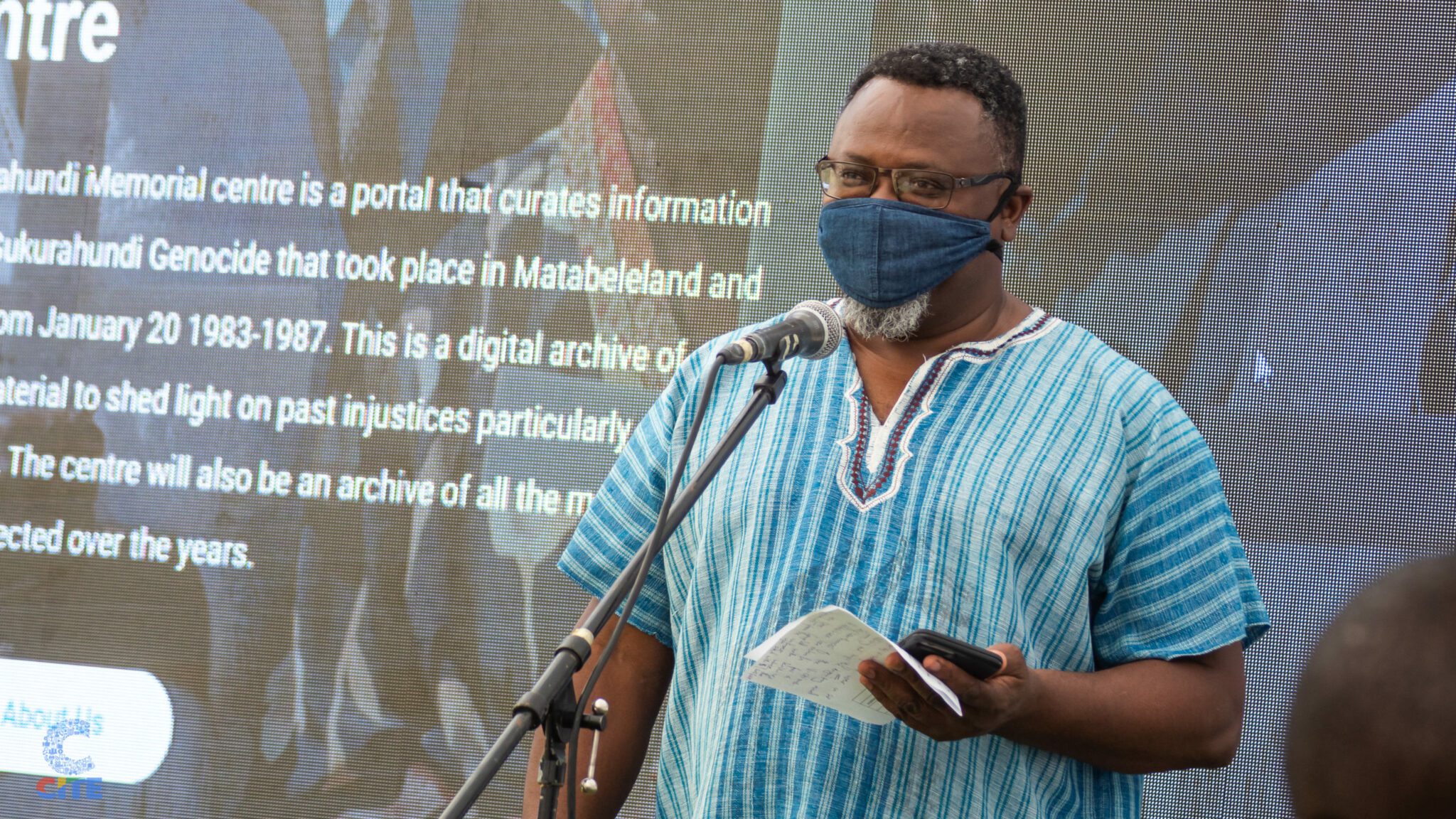The Centre for Innovation and Technology (CITE), Friday, launched a Gukurahundi documentary and memorial library in Bulawayo at a colourful ceremony attended by representatives of civic society organisations, journalists and other critical stakeholders.
The launch was the culmination of CITE’s inaugural virtual Asakhe Film Festival on healing and reconciliation which ran from October 9 to 30.
Titled: “I want my virginity back” the emotional documentary captures sad experiences of Matabeleland rural women during Gukurahundi which include rape, torture and killings.
The library on the other hand which can be accessed partially physically and largely online has a collection of books, papers and artefacts that depict the early 1980s massacres in which at least 20 000 civilians were massacred by the North Korean-trained fifth brigade deployed to Matabeleland and Midlands provinces.
Ironically, the launch coincided with President Emmerson Mnangagwa’s meeting with Matabeleland chiefs at the Bulawayo State House which discussed exhumations and reburials of the victims of the dark chapter of Zimbabwe’s history described by late former president Robert Mugabe as a “moment of madness.”
Speaking at the occasion, National Democratic Institute (NDI) country director, Arnold Tsunga, who was the guest of honour, congratulated CITE for the initiative.
“Gukurahundi is an international crime; it is a genocide,” he said.
“It is both a national issue as well as an international issue. It is unacceptable for Zimbabwe to just exhume and rebury the victims without an inquiry into what exactly transpired, who killed the masses and what led to that and it was a government order.”
He said there was a need for the victims to be compensated as part of healing and bringing closure to the issue which has dogged the country for nearly four decades.
Tsunga said both the documentary and the memorial library were very important in Zimbabwe in that they give a clear picture of what transpired during the period especially to those born afterwards.
He said the online library remained safe from attacks, such as bombings by the state security agents.
“I think putting it (library) online is a more brilliant strategy,” said Tsunga.
“It increases the spread of information; it allows for more safe storage. It also allows for the new normal brought about by Covid-19 where people no longer need to physically gather for meetings.”
CITE director, Zenzele Ndebele, said the title: “I want my virginity back” was arrived at after carefully analysing what the interviewee said about their experiences.
“When we were going through the footage and looking at the people who were talking about these things, I think two or three people that we interviewed said: “I want my virginity back” and then we realised probably this is the title,” said Ndebele.
“So the title comes from the people we were talking to. Rape is one thing that many people don’t talk about and when it comes to Gukurahundi we really discovered that a lot of women were raped but not so many of them are willing to talk about it. I remember in one of the meetings, one old man said: “It’s only that women are afraid to say it out, almost all women were raped here.”
Ndebele added that a lot of people were still in pain because of what happened during Gukurahundi.

